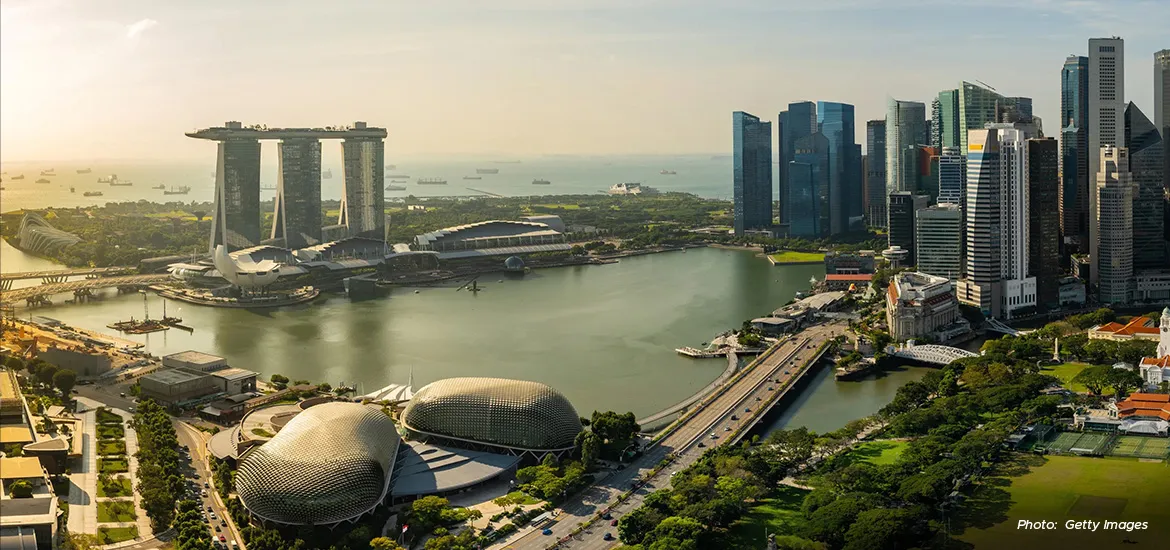In many ways, Singapore offers a case study in how small and medium-size nations can keep pace in an escalating AI arms race. Its experience suggests small states might even have advantages over large ones in the Big Data era — and can be uniquely agile in unlocking AI’s power.
“If you’re a small country, you need to be smart, you need to be faster, you need to be nimble,” says Oliver Tonby, senior partner in McKinsey’s Singapore office. “Singapore shows what a proactive and dynamic government can do.”
Singapore was one of the first countries to adopt a national AI strategy, in 2019. Last December, Deputy Prime Minister Lawrence Wong (who’s since become prime minister) updated and expanded those initiatives in a policy framework billed as “National AI Strategy 2.0.” As part of that framework, the government has allocated US$743 million over the next five years to boost the country’s AI capabilities.
Josephine Teo, minister for digital development and information, says that Singapore’s aims are modest. “We aren’t trying to be an AI superpower,” she insists. “We don’t need to be.” Instead the city-state hopes to position itself as a kind of digital Switzerland, trusted by players in both power blocs.
To an extent, Singapore has achieved that goal already. Its top tech startups are bankrolled by venture investors from both the US and China. Singapore’s data centres host cloud infrastructure for Amazon, Google, Microsoft, and Meta Platforms — but also China Telecom and Alibaba.
In Singapore’s central business district, Chinese tech giants like TikTok parent ByteDance and online retailer Shein jockey for office space alongside Google, Amazon, and IBM.
The question, far from resolved today, is whether any of Singapore’s nascent AI players will build global footprints of their own.
A hallmark of many of Singapore’s AI initiatives is an effort to leverage its status as a global hub for travel, finance, and cargo, with the hope of developing and monetising AI specific to those industries.
Singapore’s Changi Airport is one of the world’s busiest; more than 59 million travellers passed through last year. Changi uses AI to screen and sort baggage, and to power facial recognition technology for immigration clearance.
Today, that technology makes Changi one of the world’s most efficient airports: In the future, it could conceivably power algorithms that Singapore could market elsewhere. AI plays an equally vital role at Singapore’s sprawling container port, the world’s second-busiest after Shanghai. Last year, the port handled a record 39 million TEUs (or 20-foot equivalent units, each one roughly equal to a standard shipping container).
The Port of Singapore uses AI to direct vessel traffic, map anchorage patterns, coordinate just-in-time cargo delivery, process registry documents, and more.
Those capabilities helped operators cope with a sharp surge in demand earlier this year as global shipping lines rerouted away from the Red Sea to avoid Houthi attacks, according to David Foo, assistant chief executive at the Maritime and Port Authority of Singapore. And the port’s operators have become so adept at using AI that they are preparing to license their management systems to other shipping hubs.







